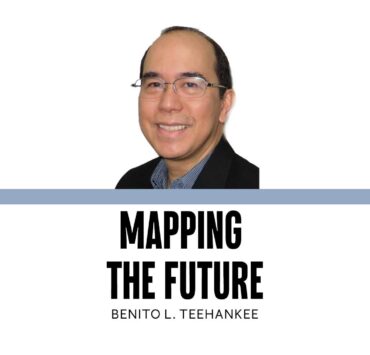Anti-progress, not anti-poor

In one of his first official acts as secretary of the Department of Transportation (DOTr), Vivencio “Vince” Dizon ordered the Toll Regulatory Board (TRB) to suspend the implementation of cashless toll collection on major expressways that would have started this month. He said he had already informed toll operators that the plan to go fully cashless on March 15 would not push through, “and we are not going cashless for the foreseeable future.”
There is also the looming delay again in the public utility vehicle (PUV) modernization program. While stressing that it will push through as planned, Dizon raised the possibility of it being postponed, saying “… there are implications and there are factors that everybody needs to consider in the transition from the current PUV system to a modern system.”
Under the full enforcement of the “no valid ETC (electronic toll collection) device, no entry” announced months ago by the TRB, all vehicles using the expressways must be equipped with radio frequency identification or RFID tags and violators faced fines ranging from P500 to P5,000, depending on the frequency of the violation.
Dizon cited the heavy congestion at the major exits of the North and South Luzon Expressways when it was initially implemented. And his solution is to stop it altogether, indefinitely. The reality on the ground, however, is that the lanes used by cash-paying motorists are heavily congested with long lines of vehicles without RFIDs, hampering the fast and efficient flow of traffic in the other lanes going to the ETC booths. For the TRB, the flow of traffic will be better and more efficient once these cash lanes are strictly used for the ETC.
Efficiency and time savings
Automation makes for efficiency and time savings. The ubiquitous automated teller machines (ATMs) are a clear example. Customers used to spend much effort and time going to their bank’s branches to get cash. This is now as easy as looking for the nearest ATM of any bank and withdrawing money instantly.
Anti-poor? Why he also felt the cashless system in toll road operations as anti-poor is puzzling. The installation of RFID stickers is free and there is no required maintaining balance. Motorists may load the exact amount of toll fees needed and all motorists—rich or poor—pay the same rates corresponding to the distances they traveled.
Dizon had argued that implementing a fully cashless toll collection system would be unfair to lower-income motorists: “(In my opinion) … having a cashless system is not pro-poor. It is anti-poor.” He pointed out the difficulties that motorists with insufficient or zero balance in their RFID accounts would face under a cashless setup. “What will they do if there are no cash lanes? That would be another burden on the people,” he said in a mix of Filipino and English. “This cashless system, in my opinion, only creates more hardship. That is why I do not believe in it.”
RFID readability
Just exactly how many of these “poor” motorists exist? Minding one’s account balance is part of the discipline that all motorists, rich or poor, must possess. Besides, there are service roads free of charge available to those who cannot afford to pay the toll fees.
Perhaps a valid point raised by Dizon in suspending the cashless system is the need to “fix it first,” asking: “Is there a way to make it more efficient? Is everything working fine? Are all barriers functioning? Are all RFID stickers being read correctly?” But suspending it indefinitely is not the answer. Give the toll road operators a specific period—perhaps a month or two—to fix these kinks. Besides, under the cashless program’s 2024 minimum performance standards and specifications, the TRB mandated toll road operators to conform and comply with a host of checkpoints, including the requirement that toll plazas must have at least a 98-percent RFID readability rate. All Dizon had to do was seek an update from the TRB regarding compliance with these performance requirements.
Unified payment option
Theoretically, what is anti-poor is the toll road system itself. It precludes the poor from using time-saving expressways that are now available only to those who can pay. Roads are a public service a government needs to provide all its citizens, regardless of economic status. But as corruption keeps it from generating more revenues than it needs to spend, it has to let those for-profit companies do the job at the expense of the poor. Every public service that a government privatizes—for example, water and electricity supply—is in theory anti-poor. These necessities should be provided by a well-functioning government at a very minimal cost.
The full automation of the toll road payment system, on the other hand, is not anti-poor. It is for progress. Suspending it will delay the implementation of a unified payment option, where motorists need to maintain only a single account that can be used in all toll ways, making travel more seamless and efficient.





















